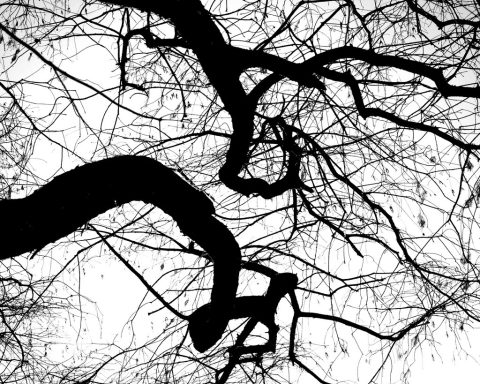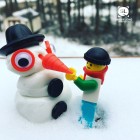Your story was fascinating to read. What was your inspiration? Did you have a specific image in mind?
The story began with wanting to explore the idea of hunger on a fundamental level, where it can pervade your every waking thought. I was considering how a river could represent the lies we tell ourselves for comfort, but how truth can ultimately be far more sustaining, even if it reminds you how hungry you are. The title, “Milk and Other Lies,” refers to the travesty of multinational milk companies convincing women that bottle feeding their babies was better than breastfeeding, which led to infants dying in poor communities, especially in third world countries. My story aims to examine how something can appear to be enticing, but is in fact a treacherous and dangerous illusion.
This piece felt very impactful, its flash fiction form playing into how striking it is. Did you start out knowing that it would be this short? When do you feel like you’ve told enough of a story?
The story actually began life as a poem, which is probably why it’s so distilled. I often write in one mode and then change to another to tease out more depth, hopefully without losing the power of the original form. I like the fact that the extreme brevity invites the reader to be fully engaged, as they’re required to fill in the gaps between words.
I write fairly instinctively. I finish the first draft where the ending feels right, but I go back after some time—that can be half an hour or half a year—and check that the ending still feels right. Often, I find I need to add a little more at that point. In this case I wrote fast, with each stanza pouring after the previous one. Re-jigging it into prose gave me a fresh view of my sentences and word choice and helped me understand my narrator more deeply. The story structure and final line, however, remained the same.
You have used fairy-tale-like imagery to describe a rather jarring situation. What has led you to this approach, and were you ever afraid of romanticising the topic?
Fairy tales are a form most of us have been familiar with since childhood, when we were still wide open to discovering the world. Studies have shown that fiction helps us to develop empathy, and I’m pretty sure this is because they speak to us at an emotional level. Like the key to a magic door, fairy tales provide a way in—a means for us to identify with creatures and characters utterly unlike ourselves, from princesses to ogres, and with problems ranging from thousand-year sleeps to murderous step-parents. I do not believe fairy tales romanticise terrible situations, but rather equip us to consider them head-on and potentially find a route forward.
Your piece can be read as a critique on poverty and the way children suffer from it. What do you think is the role of fiction in addressing issues that we would rather look away from?
Fiction is often a good way into examining stark truths. We’re all somewhat jaded from the relentless bad news we are presented. I’m sure that means we are more closed off to what’s actually going on. When we read fiction, our frame of mind is usually more receptive—effectively, our drawbridge is lowered. Fiction helps us get our heads around vast, frightening truths, and captures the emotional honesty that prompts empathy without making us turn away in fear or boredom.
You have a blog, SkyLightRain.com. Does it function to some extent as a journal? How does maintaining this blog help you with your writing?
Writing can be a rather solitary experience. Over the years I’ve discovered an array of creative communities that I enjoy being part of, and which often inspire me. SkyLightRain.com offers me the chance to big up the talented individuals who make up those communities. I have a background in arts and travel journalism, and the blog keeps me connected to those worlds as well as providing a platform from which I can mention my own writing successes. I’ve learnt that’s it’s vital to celebrate every success—if you don’t tell the world, who will?
Can you suggest a piece of short fiction that you would recommend to beginning writers?
“The Lottery” by Shirley Jackson is a brilliant, roller coaster of a read. First published in 1948, it’s an examination of how easily we humans accept the roles society casts us in, and the rules it sets for us to live by, to an extent that can lead perfectly rational people to commit atrocities. Jackson guides us with assurance into a world very like ours where a terrible act takes place with such regularity that no one bats an eye. It reminds me of how commonplace slavery was across the globe, that women were widely considered possessions, and how exceptional individuals are able to start movements that upset the status quo, making the world a more positive place.



 The SmokeLong Grand Micro Contest (The Mikey) is now an annual competition celebrating and compensating the best micro fiction and nonfiction online.
The SmokeLong Grand Micro Contest (The Mikey) is now an annual competition celebrating and compensating the best micro fiction and nonfiction online.